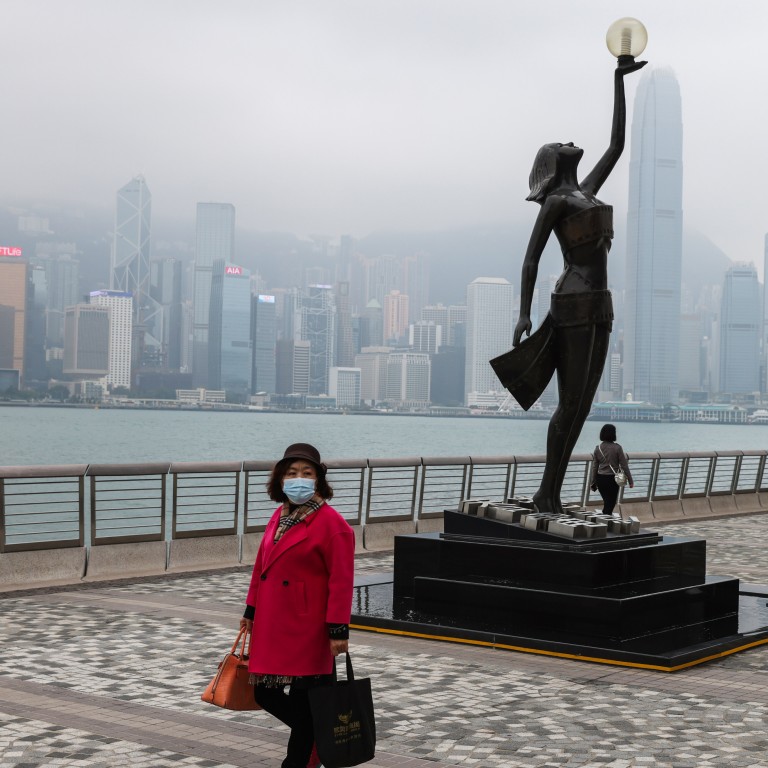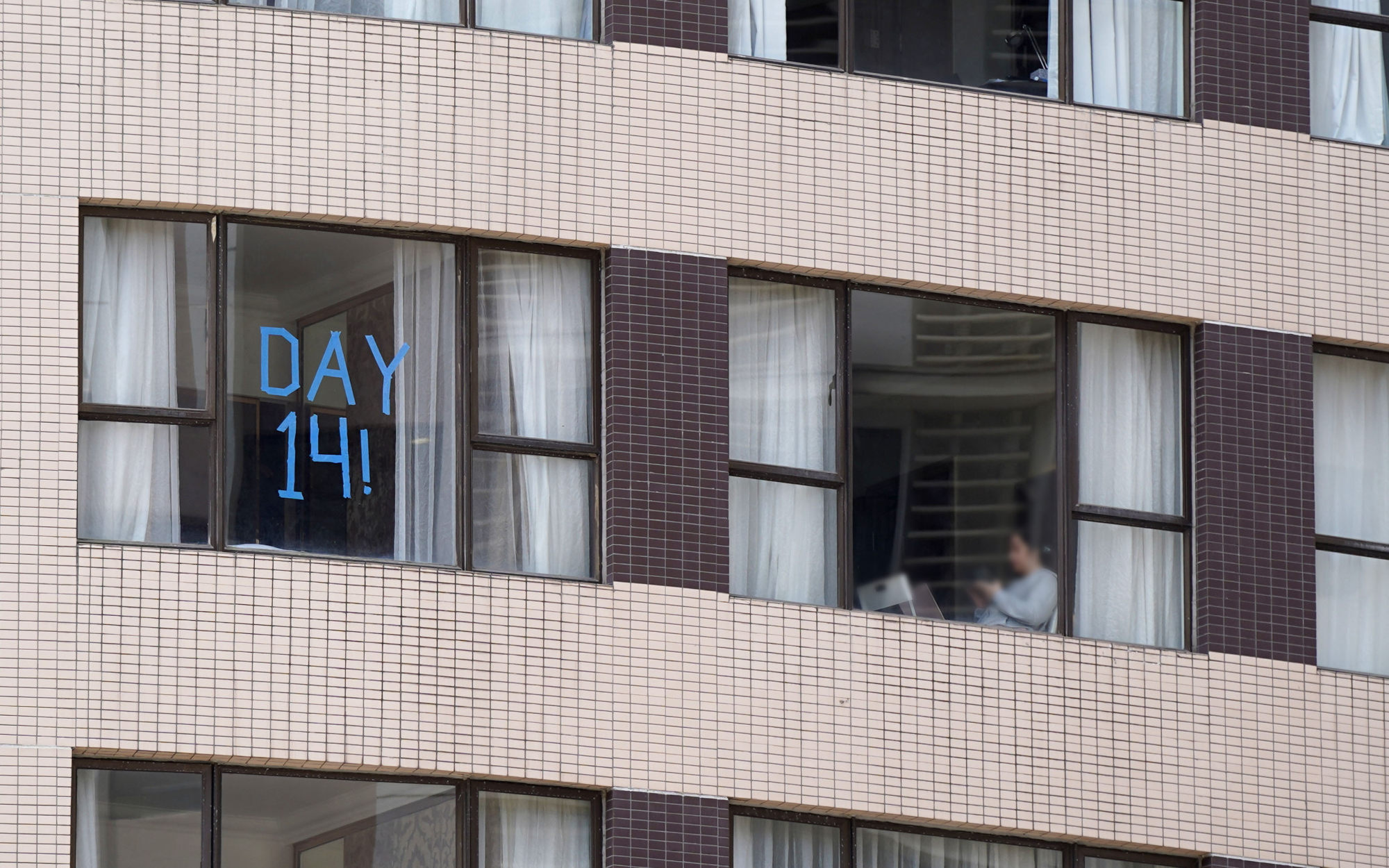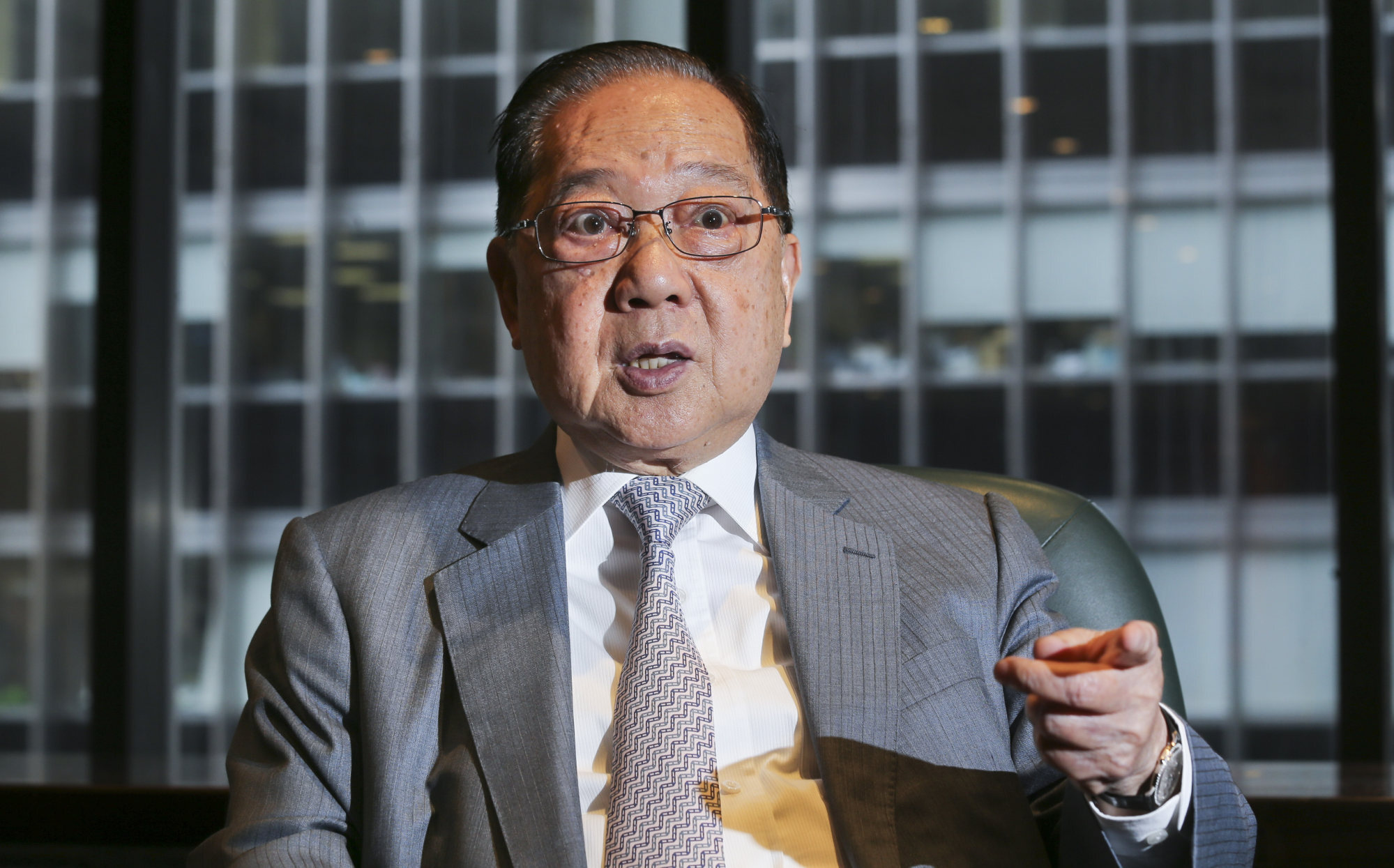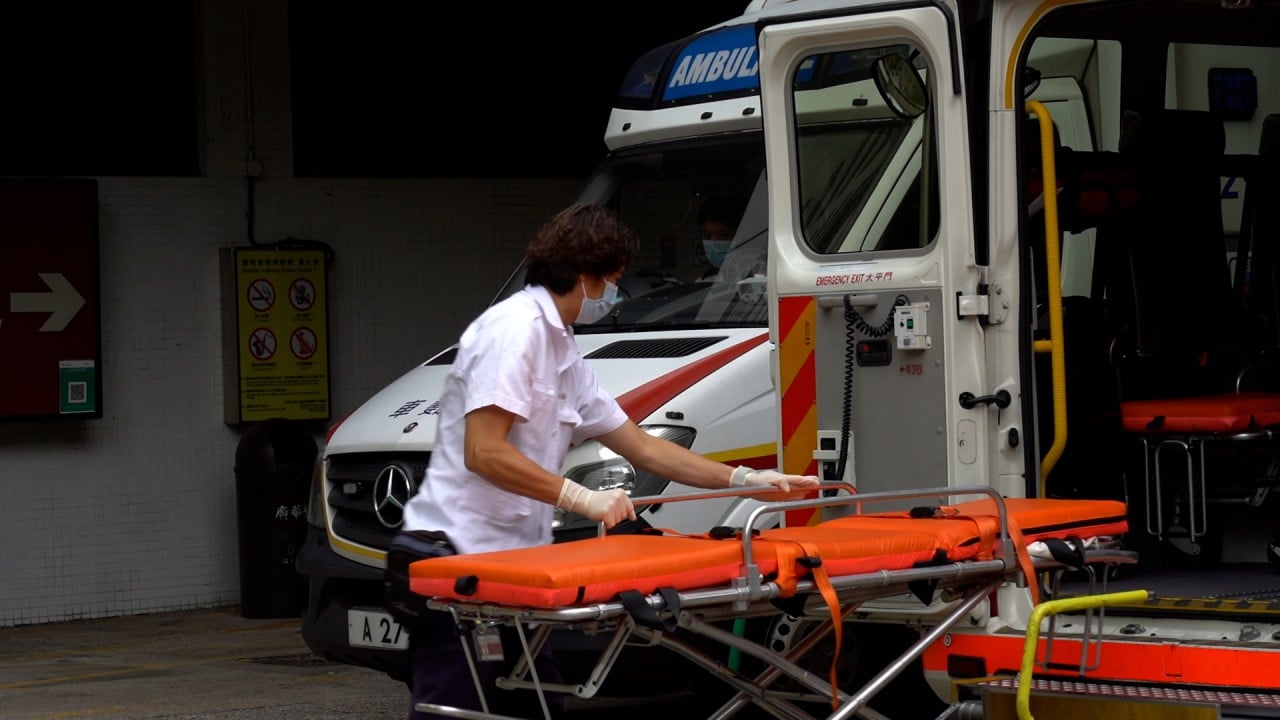
Coronavirus: Hong Kong hotels answer Carrie Lam’s call, agree to help with additional rooms for isolation use
- A first batch of 4,400 rooms at hotels that are already being used for quarantine are likely to be secured for use as isolation facilities this week and next
- Developers have offered more rooms too, ‘in a strong show of support’: sources
Hong Kong developers and hotel owners reacted positively and agreed to help address a shortage of isolation facilities during a meeting with Carrie Lam Cheng Yuet-ngor on Wednesday, sources said.
These rooms, located in designated quarantine hotels, have already installed adequate facilities such as air purifiers, sources said. They can be used as soon as possible, but some property developers have offered additional rooms too, in a strong show of support, according to sources.

To meet the government’s isolation facility requirements, hotels should have a direct entrance, the sources said. “Hotels built atop shopping malls, or integrated with other developments such as residential projects, will not be eligible for this purpose,” the sources said.
The government will provide training for hotel staff on how to protect themselves while working in an isolation hotel. Priority medical treatment will be offered for hotel staff who do get infected, the sources added.
“I have called for members to support the government during this critical moment. But we first need to see what the government says,” Stewart Leung Chi-kin, chairman of Reda’s executive committee, told the Post before the meeting. “We will definitely help. As citizens, we need to help. We will cooperate with their needs,” he added.
Reda said it would support the government in combating the Covid-19 outbreak as soon as possible. “Members agreed to make available suitable provisions for isolation facilities according to the government’s requirements,” it said in a statement.
On Tuesday, Lam said she was approaching industry leaders for the additional 10,000 rooms for the isolation of Covid-19 patients. “I do not want to use my power, but I do have the power under the [disease control ordinance] to make a regulation to ask for their cooperation,” she said.

The isolation facilities will be used to house Covid-19 patients with mild symptoms and their close contacts. The city is currently battling a resurgent Covid-19 outbreak, which has driven daily caseloads to record levels.
A total of 40 hotels providing 11,500 rooms are currently in use as quarantine facilities for overseas travellers. This number will rise to 44 hotels and 12,500 rooms from March 1 to July 31, which would mean 14 per cent of Hong Kong’s 320 hotels and 89,403 rooms are being used for quarantine services.
A major developer that declined to be identified said it planned to allocate 1,000 rooms for isolation purposes. “We still have to pass a government inspection and inform the hotel staff about the new arrangements,” the developer said, adding that it would announce its plans soon after getting the go-ahead from the government.
Meanwhile, Sun Hung Kai Properties (SHKP), Hong Kong’s largest developer by market value, said it was in active talks with the government after the latter indicated its plan to turn some hotel rooms into isolation facilities for patients with mild or no symptoms.
“The group is working closely with relevant departments to assess the suitability of appropriate hotels to serve such a purpose, ensuring related accommodation and processes can meet safety and hygiene requirements. We understand the government will make a proper announcement in due course,” SHKP said in a statement on Wednesday.
Sino Group, which attended the online meeting called by Hong Kong’s chief executive, said it was “carefully studying the requirements with relevant government departments and assessing our hotel facilities to support combating the pandemic”. CK Asset, another attendee, said it “would actively explore all methods to support the government”.
The feasibility of providing extra facilities is currently being evaluated internally, said a spokeswoman for Nina Hospitality, which has three quarantine hotels. This included discussions over requirements for community isolation facilities, software and hardware settings, and which links in the process will be handled by government personnel and which will be handled by hotel employees.
Additional reporting by Lam Ka-sing and Peggy Sito


